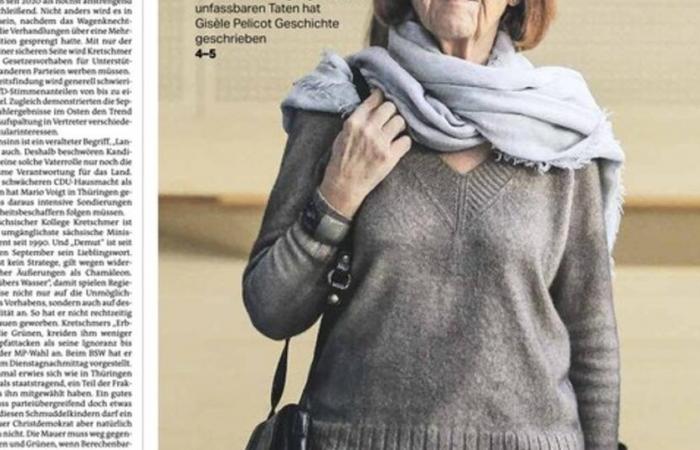It is in French that the daily newspaper addresses Gisèle Pelicot, on the front page of her edition of the day of the verdict of the so-called Mazan rape trial. “Merci”, writes the left-wing Berlin newspaper, which also displays a raised purple fist, a feminist symbol. For the media, the legal action launched by the septuagenarian against her ex-husband and 50 other men is one of the most important in recent years. “Gisèle Pelicot made history because she had the courage to publicly denounce the appalling crimes [dont elle a été victime].”
The main accused, Dominique Pelicot, was sentenced to twenty years of criminal imprisonment, with a two-thirds security period. He inherits the maximum sentence he faced, in particular for having raped and sedated his former wife on multiple occasions over a period of ten years, and for having handed her over to dozens of men whose rapes he filmed. The 50 other defendants were also found guilty of rape, assault or sexual assault, with sentences less than those required – ranging from three years’ imprisonment, two of which were suspended, to thirteen years’ imprisonment.
But for the German title, “regardless of the outcome of the trial”. In her eyes, Gisèle Pelicot had no matter what “already won” by changing the way French society views sexual violence.
A historic trial
In a long article, the daily returns to this trial which has caused so much ink to flow, including abroad. He recounts the attitude of the accused in court, the unbearable videos of the rapes shown in court, the applause in support of Gisèle Pelicot outside the courtroom, her calm and dignified attitude. But he also insists on the historical nature of the Mazan affair.
“The Pelicot affair could lead to a change in the definition of rape in French law, he recalls. The absence of consent of the victims could become a criterion [pour caractériser juridiquement un viol].” A concept currently absent from the Penal Code.
For the daily newspaper, this trial has “opened the eyes of many people” in a country where 94% of rape cases brought before the courts are dismissed – very often for lack of evidence. “According to a study, 80% of French people consider that we need to think about the way in which society manages cases of sexual violence”, explains the left-wing newspaper. The sign, perhaps, that “the debates at the Avignon court made French people think”. For this, it is necessary to address “a huge thank you” to Gisèle Pelicot.






